
 Flash News
Flash News
Drenova prison police officer arrested for bringing drugs and illegal items into cell
Lavrov: NATO is risking self-destruction with new military budget
Kurti and Vučić "face off" tomorrow in Skopje
Construction worker dies after falling from scaffolding in Berat
The prosecution sends two Korça Municipality officials to trial
Rama's tour with the diaspora: Meetings with immigrants or electoral campaign?

From New York to Thessaloniki, Prime Minister Edi Rama has traveled around the world to hold meetings with Albanian diaspora communities before next year's elections. Opponents say he is trying to avoid resentment against him in the country.
Edi Rama came to Thessaloniki on Sunday with good news for the Albanian community in Greece.
Addressing a crowd of about 2,000 flag-waving supporters, Rama said they will be able to vote by mail in Albania's next parliamentary elections, to be held in the spring of 2025.
He declared that he returned to Greece "with a promise kept, for the right of every Albanian outside Albania to vote".
However, Rama was not received with universal enthusiasm. A small group of Greek nationalist protesters protested outside the Porto Palace hotel, where the prime minister was holding his meeting, accusing Albania of violating the rights of the country's ethnic Greek minority.
Relations between Albania and Greece have been strained in recent months following the jailing of elected ethnic Greek mayor Fredi Beleri by an Albanian court on vote-buying charges, although the politician has now been released. Athens has even threatened to block Tirana's progress towards EU membership over the issue of minority rights.
The Greek Foreign Ministry warned on Sunday that Athens demands "full respect, on the part of Albania, of the rights of the Greek ethnic minority" as "a clear condition of Albania's accession process".
But despite the diplomatic turbulence, the enthusiastic turnout for the speech is what Rama was looking for when he arrived in Thessaloniki. According to the Greek Statistics Authority, the Albanian community in Greece numbers around 375,000 – too many potential voters to cast their ballot by post.
Rama's trip to Thessaloniki was the latest in a series of foreign visits to diaspora communities ahead of the 2025 elections. He also plans to visit London, Milan and Munich, where large numbers of Albanian expatriates live.
His Socialist Party has been in power for three terms and he has been prime minister since 2013. Its chances of winning another term in office look good, with an opposition that is deeply divided and its two main leaders who are facing charges of corruption. The head of the Democratic Party, Sali Berisha, is currently under house arrest and the head of the Freedom Party, Ilir Meta, is in prison.
Megjithatë, qeveria e Ramës dhe Partia Socialiste gjithashtu janë përballur me problemet e tyre gjyqësore. Zyrtarë të ndryshëm të lartë, kryetarë bashkie, deputetë, madje edhe ish-zëvendëskryeministri i tij përballen me akuza për korrupsion dhe lidhje me krimin e organizuar.
Diaspora e Shqipërisë ka qenë gjithmonë e rëndësishme kur bëhet fjalë për zgjedhjet, për një arsye të thjeshtë: madhësinë e saj. Rreth 1.6 milionë shqiptarë kanë të drejtën e votës jashtë Shqipërisë. Sipas regjistrimit të fundit të popullsisë, Shqipëria ka vetëm 2.4 milionë banorë.
Rama njoftoi në maj se do të fillonte një turne për të takuar diasporën, me pretekstin patriotik që do t’u prezantonte shqiptarëve jashtë vendit vizionin e tij për planin e tij të zhvillimit “Shqipëria 2030” – një referencë për vitin që Rama thotë se vendi mund t’i bashkohet Bashkimit Evropian. Ai deklaroi se vizita e parë, në Athinë, kishte për qëllim “të angazhohesha me bashkëqytetarët e mi jashtë vendit dhe të ndaja krenarinë e Shqipërisë për ta dhe vizionin tonë për Shqipërinë në vitin 2030”.
Por Rigels Xhemollari, drejtor ekzekutiv i Qëndresa Qytetare, i tha BIRN se ai mendon se Rama po e përdor diasporën vetëm për qëllime elektorale.
Xhemollari tha se “në Shqipëri votuesit e zotit Rama janë ngopur me retorikën e tij dhe fjalimet e tij patetike dhe premtimet e pa mbajtura të vitit 2013 dhe se ai nuk ka lidhje me to në Shqipëri dhe po shkon e po luan ‘kartën patriotike’ – duke folur me ata jashtë vendi, por edhe po u flet atyre brenda vendit duke u sjellë si një lider që mendon për kombin”.
Ai shtoi se i sheh edhe këto takime si pjesë të strategjisë së Ramës për zgjedhjet e 2025, sepse qeveria e tij ka burime që mund t’i përdorë jashtë vendit në avantazhin e saj për të fituar votues të mundshëm – “mund të prodhojë karta identiteti, të identifikojë grupe në diasporë, të përdorë konsullatat dhe ambasadat dhe ka burime më të mëdha financiare”, tha ai.
Rama dukej se e pranoi se turi synon të fitojë vota kur ai vizitoi Nju-Jorkun muajin e kaluar.
Në qytetin amerikan, ai u bëri thirrje emigrantëve shqiptarë të marrin pjesë në zgjedhjet e ardhshme parlamentare, në mënyrë që të mos “rrezikohet progresi që Shqipëria ka bërë deri tani”.
“Shqipëria ka bërë përparim të jashtëzakonshëm, por është ende një progres në rrezik nëse të gjithë nuk e vazhdojmë përpara këtë kilometër të fundit për t’u bërë anëtar i BE-së”, tha ai, sipas Top Channel.
Megjithatë, telashet e tij në vend e pasuan edhe në Nju-Jork: vizita e tij u prit me një protestë nga anëtarët e organizatës “Diaspora për Shqipërinë e Lirë”, të cilët ia ndërprenë fjalimin dhe u larguan nga takimi.
Organizata deklaroi se “nuk do të heshtë përballë një lideri që përpiqet të justifikojë dështimet e veta duke fajësuar të tjerët”.
For Afrim Krasniqi, a political expert based in Tirana who runs the Institute for Political Studies, the Socialist Party of Rama is looking for new support abroad because voters in the country are tired of its electoral promises.
"The Socialist Party has focused on the diaspora for several reasons: due to dissatisfaction within the country, the impossibility of reforms, there is great dissatisfaction in the traditional support groups of the Socialist Party and a decrease in the number of members," Krasniqi told BIRN.
"The only source of votes that the Socialist Party should focus on are individuals who do not live in Albania", he added.
Public resources for party uses?
Rama's meetings with the diaspora have also raised doubts about whether the Socialist Party is using the public administration for electoral purposes.
Gazment Bardhi from the opposition Democratic Party raised this issue after the trip to New York, posting on social networks photos of Albanian ambassadors participating in Rama's meetings.
"The diplomatic corps never, anywhere, participates in party activities and even less serves as an electoral body of the party in power. The function requires political independence and to represent Albania in a dignified way around the world", said Bardhi.
He called on the president to intervene and warned that he had prepared an indictment against Rama and the ambassadors he identified as having attended these meetings.
Xhemollari said that a legislative change has allowed Rama to exercise more power over the diplomatic corps.
"We had a change in the 2015 law on diplomacy where the powers of the president were taken over by the prime minister and the prime minister has the power to appoint ambassadors and can use that as he likes in an electoral situation," he said.
He added that the Citizen and Diaspora Resistance for Free Albania protested a previous incident when the then ambassador to the US "participated in the activities of the Socialist Party" during an election campaign.
Krasniqi also believes that the Socialist Party will try to use its administrative resources to secure the votes of the diaspora; however, he said he expects the number of voters from the diaspora to be small because "the voting procedure for the diaspora is extremely complicated with prior registration, documents with financial costs, etc."
The lack of voting opportunities for diaspora Albanians has long been a political issue, but for the upcoming elections, a compromise solution between the parties was agreed upon in July of this year.
As his diaspora tour continues, Rama hopes that Albanians abroad will now vote for him./ BIRN
Latest news


Second hearing on the protected areas law, Zhupa: Unconstitutional and dangerous
2025-06-30 22:18:46



Israel-Iran conflict, Bushati: Albanians should be concerned
2025-06-30 21:32:42

Fuga: Journalism in Albania today in severe crisis
2025-06-30 21:07:11
"There is no room for panic"/ Moore: Serbia does not dare to attack Kosovo!
2025-06-30 20:49:53

Temperatures above 40 degrees, France closes nuclear plants and schools
2025-06-30 20:28:42
Lavrov: NATO is risking self-destruction with new military budget
2025-06-30 20:13:54
Turkey against the "Bektashi state" in Albania: Give up this idea!
2025-06-30 20:03:24

Accused of sexual abuse, producer Diddy awaits court decision
2025-06-30 19:40:44



Kurti and Vučić "face off" tomorrow in Skopje
2025-06-30 18:44:12
Tourism: new season, old problems
2025-06-30 18:27:23


Construction worker dies after falling from scaffolding in Berat
2025-06-30 17:51:44




Almost free housing: East Germany against depopulation
2025-06-30 16:43:06

Hamas says nearly 60 people killed in Gaza as Trump calls for ceasefire
2025-06-30 16:14:15
Drownings on beaches/ Expert Softa: Negligence and incompetence by institutions!
2025-06-30 16:00:03


European ports are overloaded due to Trump tariffs
2025-06-30 15:30:44
The prosecution sends two Korça Municipality officials to trial
2025-06-30 15:19:54

Lezha/ Police impose 3165 administrative measures, handcuff 19 drivers
2025-06-30 14:55:04
Young people leave Albania in search of a more sustainable future
2025-06-30 14:47:52
Record-breaking summer, health threats and preventive measures
2025-06-30 14:36:19


Constitution of the Parliament, Osmani invites political leaders to a meeting
2025-06-30 14:07:54

Heat wave 'invades' Europe, Spain records temperatures up to 46 degrees Celsius
2025-06-30 13:42:02
Accident in Vlora, car hits 2 tourists
2025-06-30 13:32:16

Kurti confirms participation in today's official dinner in Skopje
2025-06-30 13:03:27

Fight between 4 minors in Kosovo, one of them injured with a knife
2025-06-30 12:38:45

Report: Teenage girls the loneliest in the world
2025-06-30 12:20:40
Commissioner Kos and Balkan leaders meet in Skopje on Growth Plan
2025-06-30 12:07:59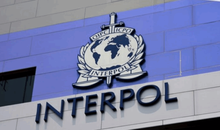
Wanted by Italy, member of a criminal organization captured in Fier
2025-06-30 11:55:53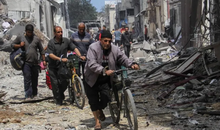
Hundreds of families displaced by wave of Israeli airstrikes in Gaza
2025-06-30 11:45:17
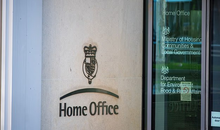
Zenel Beshi: The criminal who even 50 convictions won't move from Britain
2025-06-30 11:23:19
A new variant of Covid will circulate during the summer, here are the symptoms
2025-06-30 11:14:58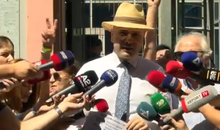
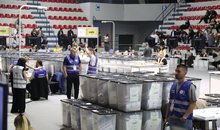
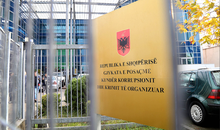
"Partizani" case, trial postponed to July 21 at the Special Court
2025-06-30 10:41:05
Uncontrolled desire to steal, what is kleptomania, why is it caused
2025-06-30 10:30:08
Requested change of security measure, hearing for Malltez postponed to July 7
2025-06-30 10:24:32
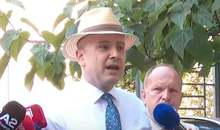

Output per working hour in Albania 35% lower than the regional average
2025-06-30 09:54:35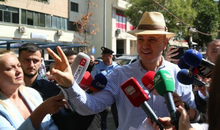

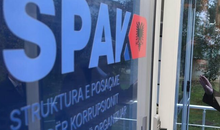
The trial for the "Partizani" file begins today
2025-06-30 09:27:57
22 fires in the last 24 hours in the country, 2 still active
2025-06-30 09:21:28
How is the media controlled? The 'Rama' case and government propaganda
2025-06-30 09:13:36
German top diplomat: Putin wants Ukraine to capitulate
2025-06-30 09:00:07
Foreign exchange, how much foreign currencies are sold and bought today
2025-06-30 08:44:38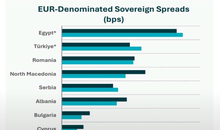
Chart/ Sovereign risk for Albania from international markets drops significantly
2025-06-30 08:26:38
Horoscope, what do the stars have in store for you?
2025-06-30 08:11:44
Clear weather and passing clouds, here is the forecast for this Monday
2025-06-30 07:59:32
Morning Post/ In 2 lines: What mattered yesterday in Albania
2025-06-30 07:47:37
Milan make official two departures in attack
2025-06-29 21:57:23
6 record tone
2025-06-29 21:30:46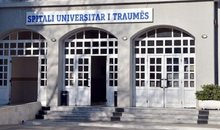
4-year-old girl falls from balcony in Lezha, urgently taken to Trauma
2025-06-29 21:09:58


Assets worth 12 million euros seized from cocaine trafficking organization
2025-06-29 19:39:43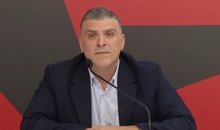
Fire in Durrës, Blushi: The state exists only on paper
2025-06-29 19:17:48

Fire endangers homes in Vlora, helicopter intervention begins
2025-06-29 18:27:51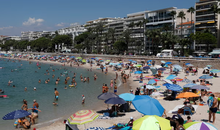
France implements smoking ban on beaches and parks
2025-06-29 18:02:08
England U-21 beat Germany to become European champions
2025-06-29 17:42:49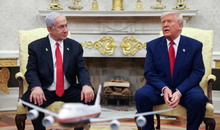
Trump criticizes Israeli prosecutors over Netanyahu's corruption trial
2025-06-29 17:08:10
Street market in Durrës engulfed in flames
2025-06-29 16:52:57

UN nuclear chief: Iran could resume uranium enrichment within months
2025-06-29 16:03:24
Albanian man dies after falling from cliff while climbing mountain in Italy
2025-06-29 15:52:01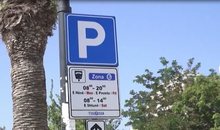

Another accident with a single-track vehicle in Tirana, a car hits a 17-year-old
2025-06-29 15:07:15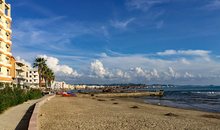
While bathing in the sea, a vacationer in Durrës dies
2025-06-29 14:54:01
Sentenced to life imprisonment, cell phone found in Laert Haxhiu's cell
2025-06-29 14:26:40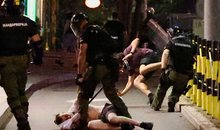
77 people detained in protest, Vučić warns of new arrests
2025-06-29 14:07:46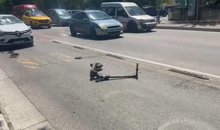
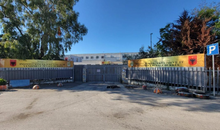
From a hospital for children to a prison for politicians
2025-06-29 13:34:02
